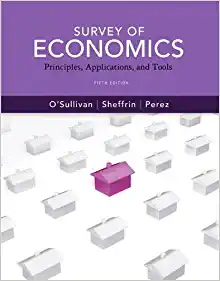Question
Q1)Which one of the following is the riskiest form of speculation using option contracts? Question options: 1)Setting up a spread using call options 2)Buying put
Q1)Which one of the following is the riskiest form of speculation using option contracts?
Question options:
1)Setting up a spread using call options
2)Buying put options
3)Writing naked call options and delta hedging
4)Writing naked put options
Q2)A hedge fund leverages its $100 million of investor capital by a factor of four (borrows $300 million) and invests it into a portfolio of junk bonds yielding 12%. If its borrowing costs are 9%, what is the yield on investor capital?
Question options:
1)14%
2)18%
3)26%
4)21%
Q3)Bank One enters into a five-year swap contract with Mervin Co. to pay LIBOR
in return for a fixed 8% rate on a principal of $100 million. Three years from
now, the market rate on 2-year swaps at LIBOR is 7%. At this time,
Mervin Co. declares bankruptcy and defaults on its swap obligation. Assume
that the net payment is made only at the end of each year for the swap contract
period. What is the market value of the loss incurred by Bank One as a result
of the default?
Question options:
1)$1.927 million
2)$2.245 million
3)$2.624 million
4)$1.808018 million
Q4)The exhibit below shows quoted fixed borrowing rates (adjusted for taxes) in
two different currencies for two different firms:
YenPounds
Company A2%4%
Company B3%5.5%
Which of the following istrue?
Question options:
1)Company A has a comparative advantage borrowing in both yen and
pounds.
2)Company A has a comparative advantage borrowing in pounds.
3)Company B has a comparative advantage borrowing in yen.
4)More than one of the above is true
Q5)A multinational corporation rated AAA is considering issuing a fix rate bond. However, is contemplating to convert the fix rate into floating rate. By using interest swaps and fix-rate notes, the issuer can achieve synthetic floating rate. To do so, the issuer should consider
Question options:
1)Issuing a floating-rate note of the same maturity and entering into an interest rate swap paying fixed and receiving float.
2)Issuing a fix-rate note of the same maturity and entering into an interest rate swap paying float and receiving fixed
3)Buying a floating-rate note of the same maturity and entering into an interest rate swap paying fixed and receiving float
4)Buying a floating-rate note of the same maturity and entering into an interest rate swap paying float and receiving fixed
Q6)A $200 million five year inverse floater currently priced at par has coupon of .32-5LIBOR. Suppose LIBOR increases to 6.4 percent by the end of first year. All of the following are true except
Question options:
1)The inverse floater value is equal to that of a 4 year zero coupon bond.
2)The inverse floater value is equal to that of a 5 year zero coupon bond.
3)$156.04 million
4)LIBOR is capped at 6.4 percent
Q7)A conglomerate corporation is considering issuing a fixed-rate bond. However,
by using interest swaps and floating-rate notes, the issuer can achieve
the same objective. To do so, the issuer should consider
Question options:
1)Issuing a floating-rate note of the same maturity and entering into an
interest rate swap paying fixed and receiving float
2)Issuing a floating-rate note of the same maturity and entering into an
interest rate swap paying float and receiving fixed
3)Buying a floating-rate note of the same maturity and entering into an
interest rate swap paying fixed and receiving float
4)Buying a floating-rate note of the same maturity and entering into an
interest rate swap paying float and receiving fixed
Q8)Assume an inverse floater has coupon of .16-2LIBOR, this $10 million bond is currently trading at Par and has 5 year to maturity. What is the worst case loss in the event LIBOR increases to 8 percent by the end of year 1?
Question options:
1)Loss of $2.9 million
2)Loss of $2.65 million
3)Gain of 3.19 million
4)None of the above
Q9)According to put-call parity, writing a call is like
Question options:
1)Buying a put, selling stock, and lending
2)Writing a put, buying stock, and borrowing
3)buying a call, buying stock, and lending
4)buying a put, selling stock, and borrowing
Step by Step Solution
There are 3 Steps involved in it
Step: 1

Get Instant Access to Expert-Tailored Solutions
See step-by-step solutions with expert insights and AI powered tools for academic success
Step: 2

Step: 3

Ace Your Homework with AI
Get the answers you need in no time with our AI-driven, step-by-step assistance
Get Started


